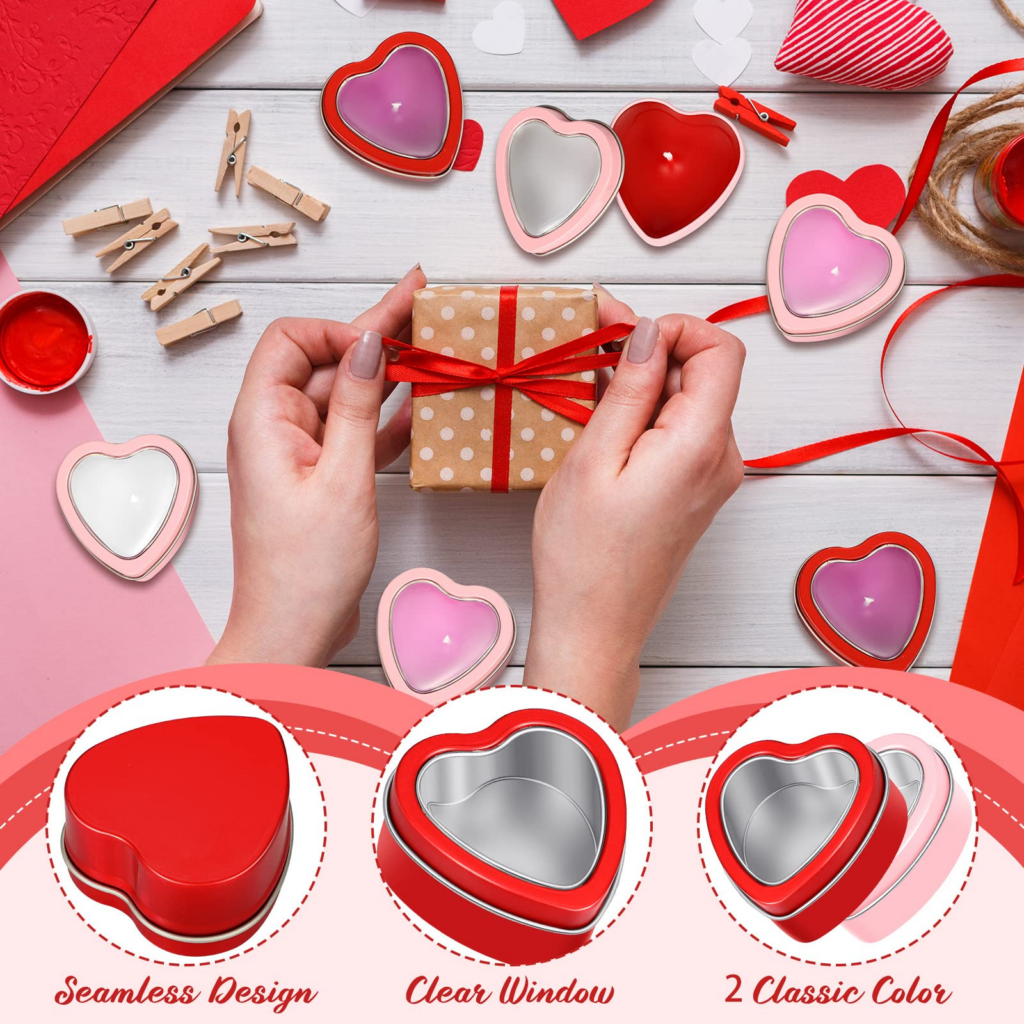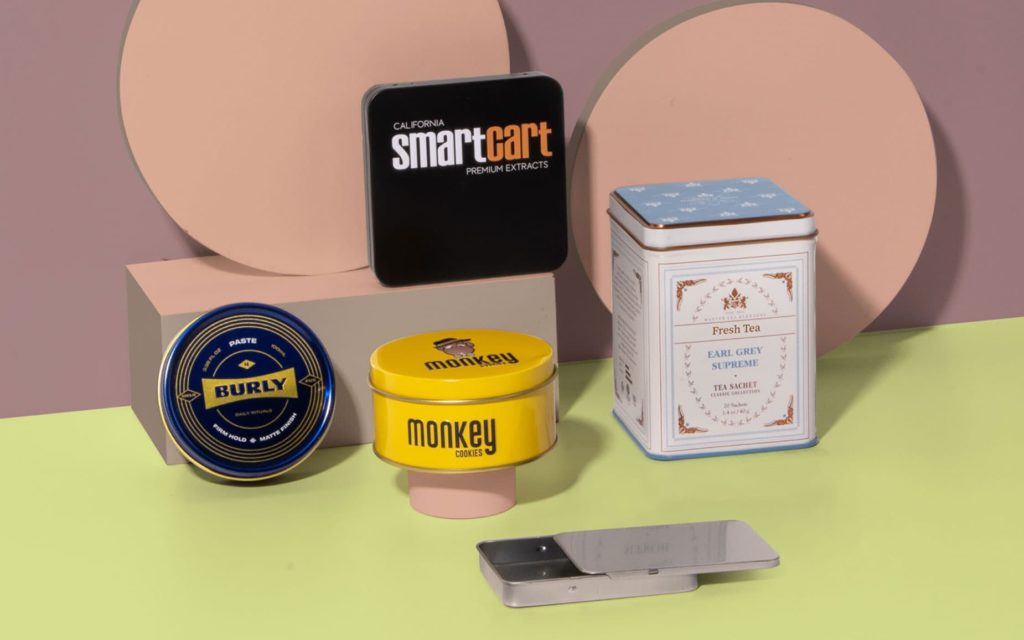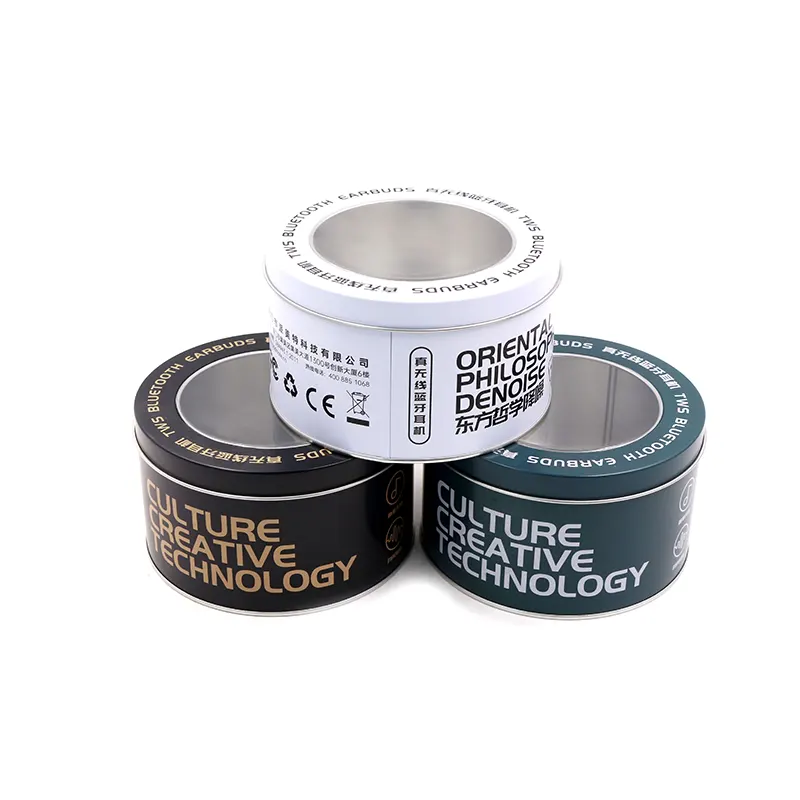When it comes to coffee and tea, the experience begins long before the first sip—it starts with the packaging. A thoughtfully designed container not only protects freshness but also communicates quality, craftsmanship, and brand identity. Among all available packaging options, tin cans stand out as a top choice for coffee and tea brands. Their combination of durability, aroma preservation, and aesthetic appeal makes them ideal for keeping your products at their best while delighting customers.
Advantages of Tin Cans for Coffee and Tea

Exceptional Protection and Freshness
- Air and moisture barrier
Tin cans are nearly airtight, protecting coffee beans and tea leaves from oxygen, 수분, and environmental pollutants. This is crucial for maintaining the natural flavors and aromas.
- Preserves delicate aroma
Unlike paper or thin plastic packaging, the metal construction prevents aroma loss, ensuring customers enjoy the intended taste experience.
- Durability during transport
Tin cans resist crushing, 덴트, and punctures, making them ideal for shipping, 저장, and retail display.
- Consistent quality
By providing a stable environment, tin cans help maintain consistent product quality over time, which is essential for specialty coffee and premium teas.
Eco-Friendly and Sustainable
Tin is fully recyclable, making it an environmentally responsible choice for eco-conscious brands and consumers.
- Reusable containers
After the original product is consumed, tin storage containers for food can be repurposed for storing spices, snacks, 또는 작은 가정 용품, adding long-term value.
- Supports sustainable branding
Using tin packaging can reinforce a brand’s commitment to sustainability, appealing to modern customers who prioritize eco-friendly options.
Premium Appearance and Customization
- Custom tins for branding: Tin cans can be printed, embossed, or finished with high-quality coatings to reflect a brand’s identity.
- Premium perception: Consumers often associate metal packaging with artisanal and high-quality products, creating a sense of luxury.
- Flexible design options: From round coffee can metal tins to rectangular tea tins, brands can choose sizes and shapes that suit their product lines and shelf presence.
- Enhanced gift appeal: Tin cans elevate coffee and tea as gift items, making them ideal for seasonal packaging or limited-edition releases.
Why Tin Cans Are Preferred Over Iron Cans for Food Storage

Safety and Taste Preservation
- Non-reactive material: Unlike iron, tin does not react with acidic foods or beverages, preventing unwanted chemical interactions.
- No metallic aftertaste: Iron cans may impart a metallic flavor over time, which is undesirable for coffee or tea lovers.
- Food-grade coating: The tin-plated surface ensures that your product maintains its intended flavor profile, even during long-term storage.
Longevity and Durability
- Corrosion resistance: Tin plating prevents rust, whereas iron cans are susceptible to corrosion, especially in humid environments.
- Extended shelf life: By protecting against environmental factors and chemical reactions, tin cans help extend the freshness and flavor retention of coffee beans and tea leaves.
- Structural stability: Tin cans maintain their shape under stress, reducing product damage during transportation and handling.
The Best Material for Tea Packaging
| 특징 / 재료 | Tin Cans | Paper Packaging | Plastic Packaging | Foil Pouches |
| Aroma & Flavor Preservation | Excellent – airtight, prevents oxidation and light exposure | Poor – permeable to air and moisture | Moderate – can protect aroma if multilayered | Good – good barrier but less durable |
| 내구성 | High – resistant to crushing and dents | Low – easily damaged | Moderate – can tear or puncture | Moderate – flexible but can be punctured |
| 저장 수명 | Long – preserves freshness for months | Short – flavor degrades quickly | Moderate – depends on barrier layers | Moderate – good short-term preservation |
| Reusability | High – can be reused as tin storage containers for food | Low – disposable | Low to moderate – limited reuse | Low – generally single-use |
| Aesthetic & Branding | Excellent – can be printed, embossed, or custom finished | Moderate – can be printed but less premium | Moderate – can print labels | Moderate – limited design options |
| 환경 영향 | Recyclable and sustainable | Biodegradable but less durable | Often not recyclable | Depends on material; often not recyclable |
Tea is highly sensitive to light, 공기, 그리고 수분, which makes packaging choices critical for quality preservation. While paper, 플라스틱, and foil pouches are widely used, tin remains the best material for tea packaging because:
- Superior protection against moisture and oxygen: Tin cans create a nearly airtight environment, keeping tea leaves crisp and aromatic.
- Preserves delicate flavors: Metal packaging ensures that subtle notes, whether floral, fruity, or earthy, are not lost over time.
- Durable and reusable: Tin cans withstand handling and transport better than most alternative packaging materials.
- Customizable for premium branding: Tins can be designed to reflect brand identity, making specialty teas more appealing to consumers.
How Tin Cans Are Made: The Tin Manufacturing Process

Understanding the tin manufacturing process reveals why tin cans are both practical and reliable:
- Material preparation: Steel sheets are coated with a thin layer of tin to prevent corrosion and create a safe, food-grade surface.
- Cutting and shaping: Sheets are cut into precise shapes and formed into cylindrical or rectangular cans suitable for coffee and tea packaging.
- Seaming and assembly: The body and lid are joined using airtight seams or welding techniques to preserve freshness.
- Decorating and branding: Tin cans can be printed, embossed, or coated with custom finishes to match branding requirements.
- Quality assurance: Each can is tested for airtightness, 내구성, and visual appeal, ensuring that the final product meets high standards.
자주 묻는 질문 (FAQ)
What are the advantages of tin packaging?
- Provides superior protection from air, 수분, 그리고 빛
- Preserves aroma and flavor of coffee and tea
- Durable, resistant to damage, and reusable
- Recyclable and eco-friendly
- Can be customized for brand identity and premium presentation
Why are tin cans used for storing food rather than iron cans?
- Non-reactive with acidic foods, preventing taste alteration
- Resistant to rust and corrosion
- Maintains product freshness for longer periods
- Avoids metallic aftertaste, ensuring quality flavor
What is the best material for tea packaging?
- Tin is ideal for maintaining freshness and aroma
- Protects against moisture, 공기, and crushing
- Supports premium branding and reusable packaging
결론
Choosing the right packaging for coffee and tea is more than a functional decision—it’s a reflection of your brand and commitment to quality. Tin cans provide unmatched protection, 내구성, and premium appeal while offering sustainability and versatility through reusable tin storage containers for food.
From artisanal coffee to specialty teas, a custom tins supplier produced with a careful tin manufacturing process ensure your products stay fresh, 맛, 그리고 시각적으로 매력적입니다. Investing in tin packaging is an investment in your brand’s reputation, customer satisfaction, and long-term success.







